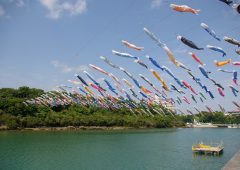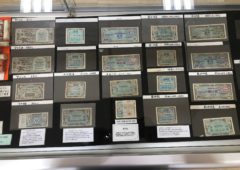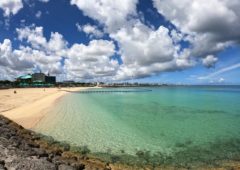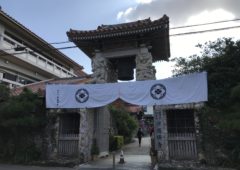2014.10.27
Okinawa takes countermeasures against spread of Ebola
Okinawa Prefecture health officials are taking countermeasures against Ebola fever, although no suspected case of the dreaded disease has so far been discovered in any Asian country.
To prepare for an occurrence of an Ebola case in Okinawa, prefecture officials are equipping public health institutes with appropriate protective gear, and preparing for a contact network among relevant medical professionals. At Naha Airport, the Prefectural Government is taking steps to enhance preventive measures by asking arrivals with a travel history to five countries, Guinea, Liberia, Sierra Leone, Nigeria and Congo, to monitor and report their body temperature twice a day for 21 days, which is the incubation period of Ebola.
In a case that a patient suspected of being infected with Ebola visits a medical facility, that medical office must give a notice to the Prefectural Public Health Center, and the center must then report the case to the Prefectural Office. The Prefectural Office will send a blood sample from the patient to the Infectious Disease Surveillance Center in Tokyo for testing.
In Okinawa, patients will be sent to the Ryukyu University Hospital or Okinawa Prefectural Nanbu Medical Center & Children’s Medical Center, which are the designated medical institutions for specified infectious diseases. They each have two isolated facilities. Four prefectural public health centers in Okinawa are designated to be in charge of transporting the patients.
According to officials, 10 sets of protective gear have already been in place since middle September, and a checkup of stretchers has been conducted. Since Ebola is a direct contact infection, it might be possible to prevent an infection by regular defense using masks, goggles, gloves and protective gear.
Naha Quarantine Station asks people who have visited the five countries, Guinea, Liberia, Sierra Leone, Nigeria and Congo, within the last 21 days to contact and declare their travel history. Furthermore, in case of having been in contact with Ebola infected patients, they must report their body temperature taken every morning and early evening for 21 days.
Even people who have not had a contact with infected people but who have visited one of those countries are still asked to check their body temperature two times a day, and if there is any change, they must report to a prefectural public health center. However, according to Naha Quarantine Station, especially people from three countries, Guinea, Liberia and Sierra Leone, are asked to check and report their body temperature whether or not they have been in contact with infected persons. The Naha Quarantine Station is also taking similar measures regarding ships that travel on international routes.
-
Thai Scammer
-
ewacloser

 2024.06.08
2024.06.08 2024.05.25
2024.05.25 2024.04.26
2024.04.26 2024.04.22
2024.04.22 2024.04.10
2024.04.10 2024.01.31
2024.01.31 2024.01.02
2024.01.02 2023.12.27
2023.12.27 2023.11.16
2023.11.16






